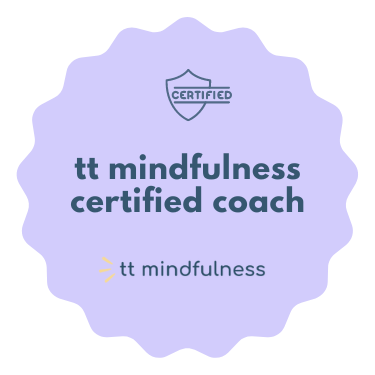In the field of Mindfulness, there are five basic pathways, each tailored to specific purposes and audiences. In this article, we will embark on a journey to explore these different types of Mindfulness courses and reveal their unique characteristics and audiences.
***
Over the past 30 years, many Mindfulness courses, books, and articles have been published. On the one hand, this provides people interested in Mindfulness with a broad spectrum and the opportunity to explore it from many angles. On the other hand, it is precisely this large amount of information that creates ambiguity for many and makes it difficult for them to have a basic concept in mind that they can explore further.
For example, a client who has recently become interested in Mindfulness and has been researching it on the Internet told me that she is very confused by the fact that I write about Mindfulness primarily in the context of personal and spiritual development, while some other authors write about Mindfulness as a means of treating depression. At the same time, some mention Mindfulness as a method used in some hospitals to prevent or treat post-traumatic stress disorder. And if Mindfulness is promoted as something secular, why are there Buddhist monasteries that offer open Mindfulness courses?
The correct answer is that there are multiple ways to practice Mindfulness, and they differ in terms of the purpose and audience for which particular Mindfulness courses are intended.
To help you research, I present five basic types of Mindfulness courses or paths below. They all have a similar starting point, but in theoretical and methodological terms, they differ significantly after the first stage, serving different purposes. Remember that this is only a framework and informal classification of Mindfulness courses and styles, and I am only using it to assist you in further research.
Mindfulness courses with a focus on the health aspect
This category of Mindfulness courses is tailored to the health aspect. It aims to help people effectively manage pain and post-traumatic stress disorder.
The most well-known author and instructor for this path is former University of Massachusetts medical professor Jonn Kabat Zinn and his umbrella program Mindfulness-Based Stress Reduction. The program is used primarily in hospitals, and as you can imagine, most Mindfulness coaches or instructors on this path are physicians and other health professionals. Jon Kabat Zinn, by the way, is one of the pioneers of Mindfulness in the West and has been instrumental in getting Mindfulness seriously practiced and researched in scientific circles. Even if you don’t have health problems and are not interested in this path, reading one of his books is advisable. I recommend that people enrolled in my Mindfulness Coach Certification Program read all of his books, even if they don’t like them. After all, it is a classic that everyone who wants to take Mindfulness teaching more seriously should know.
Mindfulness courses for the treatment of depression
This category of Mindfulness courses is tailored to people with problems with depression. Most of these programs fall into the category of Mindfulness-based cognitive therapy. They are a style that combines individual Mindfulness methods and approaches with cognitive behavioral therapy. Since it is basically a therapy for people suffering from depression or anxiety, this concept of Mindfulness is mainly taken up by psychotherapists and other mental health professionals. Judging by the results of scientific research, this form of therapy is very effective. At Oxford College a few years ago, they introduced a two-year postgraduate program called Mindfulness-Based Cognitive Therapy.
Mindfulness courses with a focus on personal development
This category of Mindfulness courses is for people interested in personal development. Commonly mentioned topics include developing creativity, raising your vibration, setting authentic goals, releasing internal blocks, creating productive habits, and living outside your comfort zone. Mindfulness techniques and approach is used as an additional tool to gain mental and emotional agility and create a sharp focus so a person can focus more on their goals and achieve the desired change. Mindfulness coaches, who most often follow this path, are usually holistic coaches whose work focuses on personal development. The TT Mindfulness program definitely belongs to this category of Mindfulness courses.
Mindfulness courses with a focus on business development
This category of Mindfulness courses is primarily aimed at companies focusing on efficiency, agility, and productivity. They are often referred to as corporate-based Mindfulness training. Such programs often combine Mindfulness with various other methods, such as NLP, practical neuroscience, or emotional intelligence. The best-known programs along this path are Search Inside Yourself, developed by Google, and Potential Project. Most Mindfulness coaches working in this field are either corporate coaches or HR professionals.
Mindfulness courses based on Buddhist principles (“Vipassana”)
This category of Mindfulness courses is closely related to traditional Buddhist principles. Unlike the previous four directions, which are completely secular or “flirt” with certain universal spiritual and metaphysical principles (depending on the preference of the author/trainer/coach), this path focuses primarily on Buddhist spirituality. This type of Mindfulness training is primarily done by Buddhist monks or people who favor Buddhist principles and ways of life. One of the most famous representatives of this style is the Buddhist monk Thich Nhat Hahn.
***
I hope that my informal classification and framework will facilitate your further exploration of Mindfulness courses and help you identify the general path to which an author, instructor, program, or book belongs.
So, to the question, “Which Mindfulness path is best for me?”
The right answer depends on what you want to achieve with Mindfulness. In other words, what is the main goal that motivates you to engage in this method?
The clearer you are about what you want to achieve with Mindfulness, the easier it will be for you to find the path that currently works best for you and is worth exploring further.
Actually, it’s like that with everything, isn’t it?


